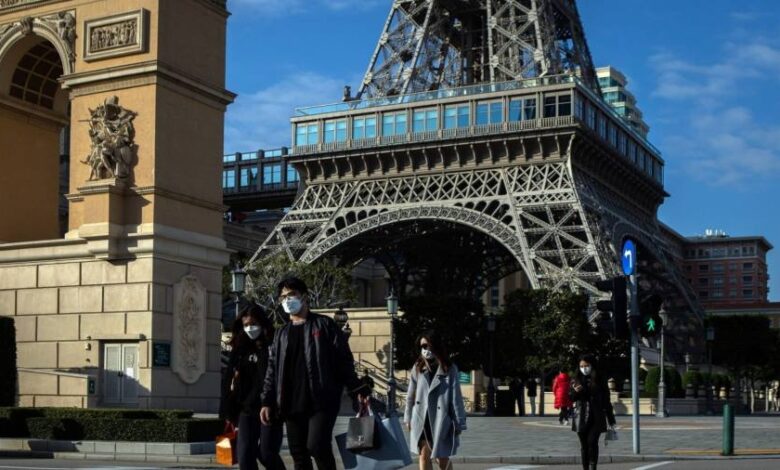Mainland Chinese vaccine tourists flock to Macau for mRNA Covid jabs

Mainland Chinese eager to secure western messenger RNA vaccines rather than domestic jabs are flocking to Macau, where they have booked out the only hospital offering the inoculations to tourists.
Beijing has not approved any foreign Covid-19 vaccines for use by its citizens, instead relying on jabs from Chinese groups Sinovac and Sinopharm. Analysts have said these provide lower levels of immunity than western alternatives, which use mRNA technology.
But an abrupt U-turn by Beijing this month on its former zero-Covid policy of containing the disease has sparked an explosion of cases and prompted a surge in the number of mainlanders seeking mRNA jabs in Macau. The former Portuguese colony and special administrative region is the only place outside mainland China where the country‘s citizens can travel without having to quarantine on return.
The vaccination slots have been quickly booked up as China’s outbreak has spiralled out of control. In October, Ivy, a 27-year-old resident of Dongguan across the border in mainland China, received her first mRNA dose at the Macau University of Science and Technology Hospital, the only place administering jabs to paying tourists.
Last week, she returned to the hospital for another dose but discovered that the vaccination slots were fully booked until the end of December.
A customer service official at the Macau hospital said his phone had been ringing “non stop” since the outbreak started gathering pace in China in early December. He noted also, however, that there had been an increase in customers cancelling appointments after catching the virus.
China’s patchy vaccination coverage had laid the foundation for the chaos gripping its medical system as hospitals became overwhelmed by sick patients after the end of the zero-Covid policy, analysts said.
About 85mn people — one-third of the 267mn Chinese citizens aged 60 and over — have not received a third vaccine dose needed for a high level of protection against the Omicron coronavirus variant. Among those aged 80 and over, this rate is about 60 per cent, or 21mn people.
Beijing has pledged to devote more resources to plugging the gaps in vaccination coverage. But Yanzhong Huang, a senior fellow for global health at the Council on Foreign Relations think-tank, said these efforts might be “too late”.
“Booster campaigns take between three to four months to complete. By that stage, this virus wave will have peaked,” he said.
The rise of “vaccine tourism” was being driven by “wealthy” mainlanders with access to scientific studies comparing vaccine efficacy, said Nicholas Thomas, an associate professor at the City University of Hong Kong who specialises in Chinese foreign policy and Asia health security.
A Lancet study from Singapore published this month found individuals who received three doses of the Sinovac or Sinopharm jabs, which are based on older technology that uses the inactivated virus to elicit an immune response, were nearly twice as likely to develop severe Covid as people who received three mRNA jabs. Those with the Chinese shots were also 50 per cent more likely to be hospitalised.
The brisk business of vaccine tourism in Macau has quickly given rise to middlemen who charge fees to arrange travel and other logistics. Viola, a Macau-based insurance agent, told the Financial Times that she charged $60 to arrange vaccination sessions for her mainland clients.
One 27-year-old management consultant, who identified himself only as Wan, and his wife paid $170 each for one dose of the mRNA vaccine after deciding against being injected with domestic alternatives.
The consultant said the couple had concerns about the efficacy of Chinese vaccines and a “lack of transparency over the trial data”.
Get Best News and Web Services here

